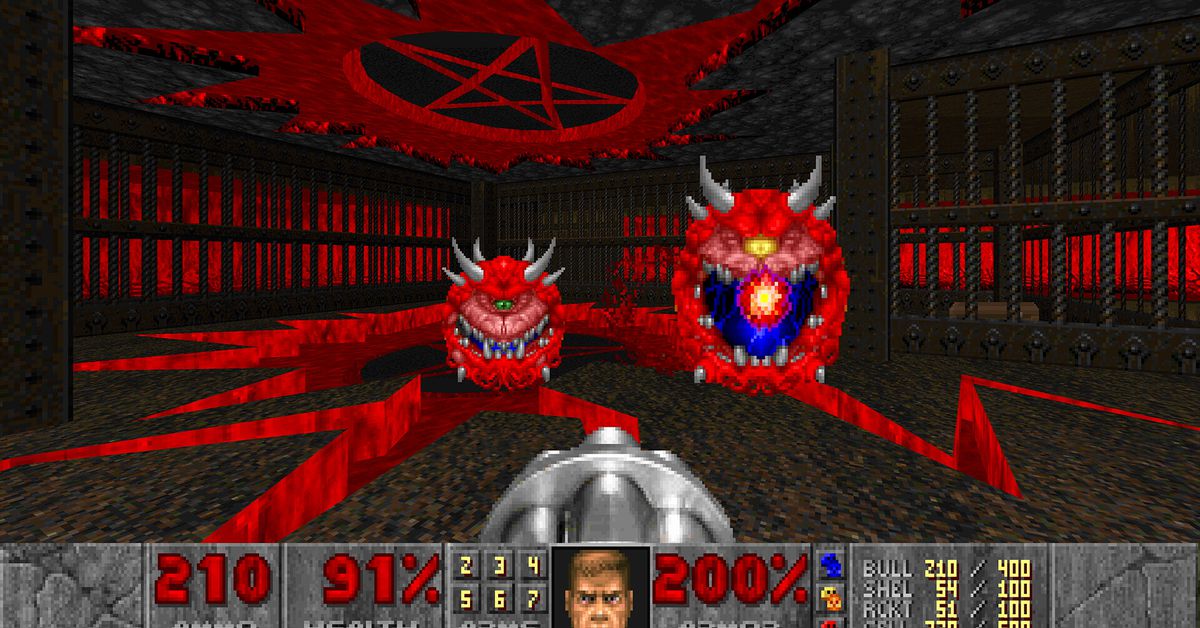MHLoppy
Currently studying CS and some other stuff. Best known for previously being top 50 (OCE) in LoL, expert RoN modder, and creator of RoN:EE’s community patch (CBP).
(header photo by Brian Maffitt)
- 3 Posts
- 25 Comments

 5·2 months ago
5·2 months agoMbin has a specific and different meaning for the term “post” as used in the OP, so it’s one place where translating from lemmy or other “generic internet forum” jargon doesn’t work. It’s for microblog posts associated with a magazine that are independent of threads in that magazine.
E.g.: https://fedia.io/m/firefox/microblog has “posts” in Mbin terminology – though if I had to guess I think most Mbin users will use the qualified “microblog post” or similar if they actually mean to reference the Mbin meaning of the term.

 2·2 months ago
2·2 months agoWhat’s up with the android beef? I hadn’t heard about that one 😅

 2·4 months ago
2·4 months agoI thought Frozen Synapse’s ability to let you simulate your opponent’s moves was super cool - surprised I didn’t end up seeing it in more strategy games (obviously not so much applicable to the normal real-time stuff though!).

 6·5 months ago
6·5 months agoProbably a quirk of having different software. I’m on Fedia which runs on mbin, as does kbin.run which MBM is on. You’re on lemmy, so I guess something was just handled differently for you (and most users!) vs kbin/mbin users.

 111·5 months ago
111·5 months agoFYI if you’re one of the people who just sees an image, the original includes a link to this:

 4·6 months ago
4·6 months agoCool idea, though I was surprised by the level of fidelity loss in the fountain example. I would’ve expected that to be a good case scenario for noise cancellation so maybe it just needs some more time to iterate and improve on its level of “false positive” removal.

 28·6 months ago
28·6 months agoRise of Nations (originally released back in 2003) had/has some interesting ideas to reduce some of the busywork:
- Worker units will automatically try to gather/build nearby after a short (configurable) delay if they’re not doing anything.
- Cities (the main worker-producing structure) has a rally point option that’s essentially “all nearby empty resource gathering”, so you can queue a dozen workers and they’ll distribute themselves as they’re created.
- Production buildings can be set to loop over their current queue, letting you build continually without intervention as long as you maintain enough resources each time the queue “restocks”.
- Units that engage in combat without being given an explicit target will try (with modest success) to aim for nearby units which they counter.
For the most part, none of the implemented options are strictly better than micromanaging them yourself:
- You will always spend less time idling workers if you micromanage them yourself.
- The auto-rally-point doesn’t always prioritize the resources that you would if you did it yourself.
- Queueing additional units is slightly less resource-efficient than only building one thing at a time.
- Total DPS is higher if you manually micro effectively.
But the options are there when you need them, which I think is a a nice design. It doesn’t completely remove best-in-class players being rewarded for their speed as a player, but does raise the “speed floor”, allowing slower players to get more bang for their buck APM-wise, and compete a bit more on the strategy/tactics side of the game instead.

 10·6 months ago
10·6 months agoThere are types of time management which I think can still be interesting. For example, are you able to afford – in the resources of time and attention – optimally micro’ing this important fight? Or are you going to have to yolo it a bit so that you can do multi-task economic tasks at the same time?
Some (much?) of the problem is that (for better or worse) skilled players can and will squeeze the game to optimality in terms of win rate, and that tends to collapse viable tactical and strategic choices. Once those choices have been optimised (the game is largely “solved”), the main way to get better is by being faster, not by being smarter.

 4·11 months ago
4·11 months agoArchive Options Failing
This one worked for me, useful if wanting to share the story elsewhere:

 11·11 months ago
11·11 months agoIt’s worth noting that since FedSearch, Mastodon has actually natively implemented opt-in search on posts.

 8·11 months ago
8·11 months agoI wonder if patch support being pulled after 2 months is down to lower-than-expected sales; it’s certainly earlier than I would’ve expected on both the dev (HBS) and publisher (Paradox) side.
Edit: related news from October that I didn’t know about.

 5·11 months ago
5·11 months agoFrom the submission:
Not a rival, just an alternative
The realization that led us to develop PeerTube is that no one can rival YouTube or Twitch. You would need Google’s money, Amazon servers’ farms… Above all, you would need the greed to exploit millions of creators and videomakers, groom them into formatting their content to your needs, and feed them the crumbs of the wealth you gain by farming their audience into data livestock.
Monopolistic centralized video platforms can only be sustained by surveillance capitalism.
Even though we cannot pinpoint the exact budget Framasoft spent on PeerTube since 2017, our conservative estimate would be around 500 000 €
With these two perspectives it seems to be doing well, even if it can’t / won’t entirely displace the major players.

 1·1 year ago
1·1 year agoThanks for the extra context!

 3·1 year ago
3·1 year agoI’m not sure if the image has since been updated, but the horn-y boy before/after isn’t the same image twice despite looking very similar. The left image has light-colored areas on the horns and some other similarly minor differences which are more noticeable when flicking between them but kinda hard to spot in a side-by-side.

 5·1 year ago
5·1 year agoWhich is exactly how the real world works. Harm has to be identified to suggest solutions.
According to the submission, some harms have been identified, and some solutions have been suggested [that could reduce the same and similar harms from occurring to new and existing users] (but mostly it sounds like a “more work needs to be done” thing).
I imagine your perspective on the issues being discussed are different from those of the author. The helicopter parent analogy makes sense in a low-danger environment; I think what the author has suggested is that some people don’t feel like it’s a low-danger environment for them to be in (though I of course – not being the author or one such person – may be mistaken).
Edit: [clarified] because I realised it might seem contradictory if read literally.

 4·1 year ago
4·1 year agoI’m not understanding why blocking is ineffective…?
As I understand it, because it requires harm to be experienced before the negating action is taken.
A parallel might be having malware infect a system before it can be identified and removed (harm experienced -> future harm negated), vs proactively preventing malware from infecting the system in the first place (no harm experienced before negation).
Fwiw I also had ongoing issues with the ZF9 pocket-dialing. Ymmv of course, but I haven’t had it happen ever since changing its position in my pocket from [up facing up and screen facing me] to [up facing up and screen facing away from me]. It’s been at least several months since I made the change, so maybe it will help some of the people having the issue?
Unless you’re also throwing money at YouTube premium (etc), isn’t this by definition unsustainable to do? So it’s not really a viable long-term strategy either.
Like don’t get me wrong, I don’t want all the tracking and stuff either, but somebody has to pay those server bills. If it’s not happening through straight cash then it’s going to be through increasingly aggressive monetization and cost-cutting strategies.

 99·1 year ago
99·1 year agoUPDATE: the shutdown has been (for now) retracted.
The admin (jerry) has switched from kbin to a fork called mbin that has apparently been able to integrate changes faster than the base kbin project. Jerry seems satisfied with the number of issues fixed in the fork (for now), so has retracted the shutdown announcement (for now).
FEDIA.IO update!!!
After I made the announcement about shutting down fedia.io, someone pointed out that Melroy, a very active developer on kbin, forked kbin to mbin. I just migrated to mbin and so far it seems to have resolved all the problems I’ve seen. It’s likely too early to tell, but I think that Melroy is VERY responsive and helpful, so I am retracting my shutdown announcement. And that makes me very happy.
https://infosec.exchange/@jerry/111235153655966812
Followup: https://fedia.io/m/fedia/t/350673 tl;dr retraction has become more concrete. No need for the “for now” qualifier anymore.





I feel like your preference makes sense when aligned from the perspective of a conventional forum-like platform. However I’d argue that that’s missing a core part of what kbin is/was – and by extension what Mbin is – which is the microblog integration alongside the forum-like stuff. With that context in mind, boosts (or whatever term you want to use for “retweet”) make sense to integrate imo.
Whether or not you think Mbin should try to integrate the microblog side of things is of course a subjective - I personally think it’s a cool idea to try at least, but with how dominant lemmy has become it can be difficult to reconcile differences and incompatibilities between it and other software like Mbin.